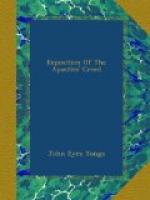The views which the Jews entertained with regard to the triumphant progress of Messiah did not accord with the statements of their prophets. The sacred writers who foretold His coming pointed indeed to victory as the ultimate issue of His mission, but they also clearly associated His life with conflict and suffering. From the first intimation of a Deliverer, which spoke of a heel bruised by man’s malignant adversary, there was indicated in every type and prophecy the truth that Messiah was to be “a man of sorrows and acquainted with grief,” whose triumph was to be achieved through suffering. The expectation current among the Jews that deliverance would be wrought by Messiah, without humiliation or suffering, showed that they misinterpreted the messages of the prophets. Familiar with the letter, they failed to grasp the spirit of the prophetical writings. Jesus laid this ignorance to their charge when He said to them, “Ye do err, not knowing the scriptures";[090] and He upbraided the two disciples on the way to Emmaus because they had failed to discover that their Redeemer’s glory was to be won through conflict: “O fools, and slow of heart to believe all that the prophets have spoken: ought not Christ to have suffered these things, and to enter into His glory?"[091]
The suffering which Jesus endured was both bodily and spiritual. Persecution followed Him as a babe: Herod sought to slay Him, and Joseph and Mary had to flee into Egypt.[092] He was “despised and rejected” by His countrymen. His claims were refused by His kinsmen. He “endured the contradiction of sinners."[093] He “took our infirmities and bare our sicknesses.” He hungered and thirsted and was weary; He was spit upon, buffeted, and scourged. The cross on which He was to suffer was laid upon His shoulders, till His exhausted frame broke down; and on Calvary a thorny crown was set upon His brow, and the cruel nails pierced His hands and His feet. But the sorrow within His soul was worse to bear than bodily buffering. Travail of soul was the consummation of His afflictions, and while we do not read of a groan wrung from Him by bodily torture, soul-trouble led Him to ask His Father with “strong crying and tears,” as His frame was agonized and His sweat was like drops of blood—“If it be possible, let this




